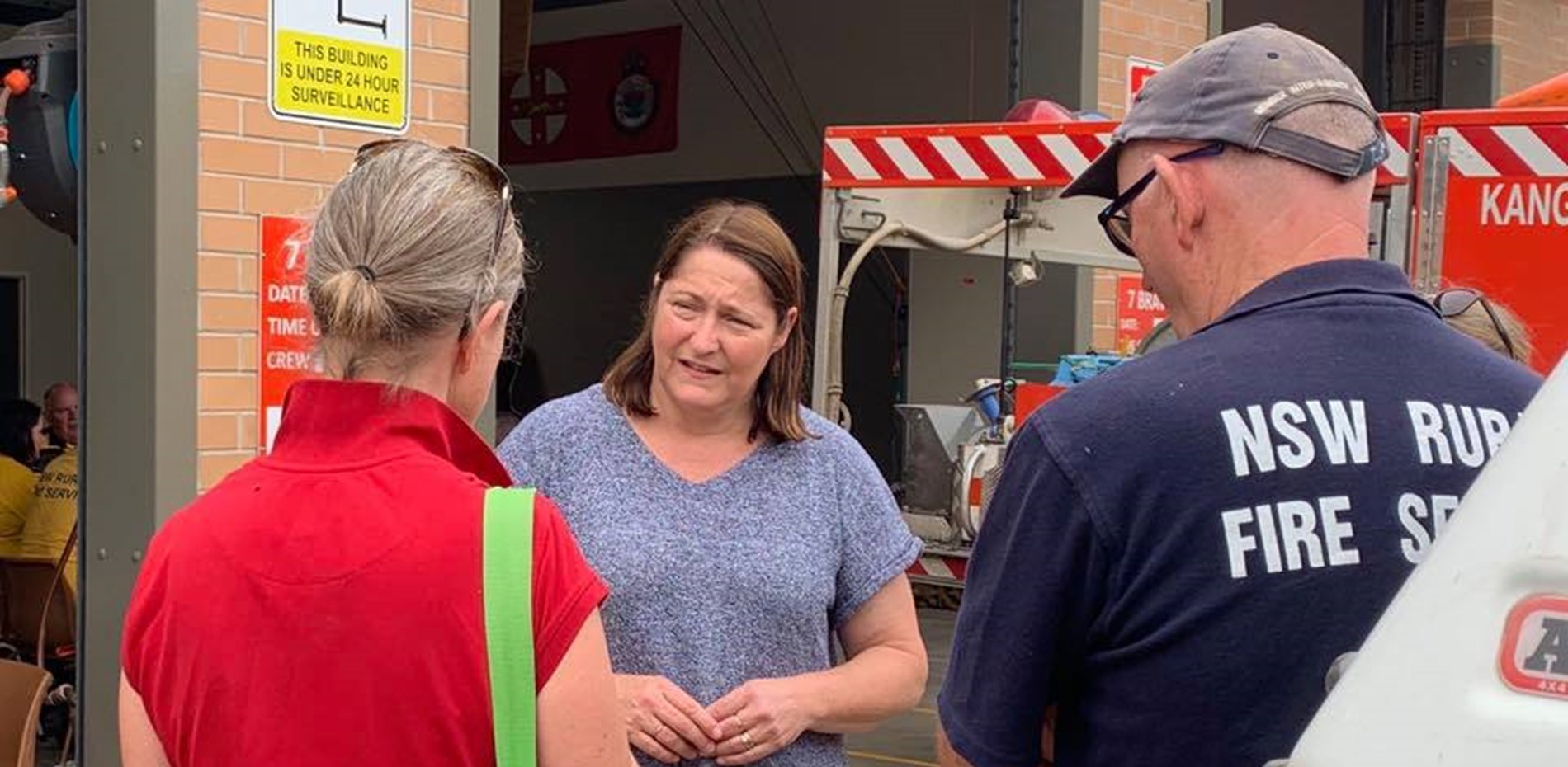Mrs PHILLIPS (Gilmore) (11:04): I love any opportunity to show support for our incredible first responders on our New South Wales South Coast. Across Australia, first responders are some of the highest valued members of our Australian community, and it is true that first responders are the crown jewel in all regional areas. I think it's fair to say that we rely on them more than in the cities. They are usually working under more difficult conditions, with bigger areas to cover and fewer services to rely on. In my electorate of Gilmore on the New South Wales South Coast, however, we feel that even more acutely. For us, first responders are our heroes. They were there for us to rely on in some of our darkest and hardest times. During the 2019-2020 bushfires, it was first responders that our community leant on and that were there for us. Our Rural Fire Service, a largely volunteer service—of course supported by retained firefighters and Fire and Rescue NSW—literally put their lives on the line for us. As bushfires raged all across the South Coast, with hundreds of homes lost and thousands more under threat, in conditions like we had never seen before, these absolutely incredible people did not hesitate to put their own lives on the line to save ours.
It's important to remember that the bushfires of that terrible black summer didn't rage for days or weeks; they raged for months. The Currowan bushfire, which started in November 2019, burned for 74 days before finally being extinguished in February 2020. That bushfire alone destroyed nearly 500,000 hectares of land. It was our firefighters that helped to save thousands of homes and countless lives over those harrowing 74 days. Devastatingly, many homes were destroyed and lives were tragically lost. I was on the ground every single one of those 74 days, whether it was at fire control—I had two in my electorate—at the staging grounds spread across our coast, in the local RFS stations, in the evacuation centres or just out in the streets with those facing the impact. I was there, and there was barely a day that went by that I didn't see a first responder lending a helping hand and doing what they could where they could in really difficult circumstances. It's important not to forget that this was not just the RFS. There were first responders of every order: New South Wales police, paramedics, SES, marine rescue, St John Ambulance, defence, surf life saving—the list goes on. On the ground were also council workers, electricity providers, tree loppers and wildlife rescuers. I know I can't name everyone who was there. It was a whole-of-community effort, and we are grateful for it.
In the wake of those devastating bushfires, I spoke with so many of our first responders. They told absolutely heartbreaking stories. Our community experienced a shared grief, a shared trauma, that is not easily explained. In those early days as the bushfires raged, I spoke long and loud about the need for mental health support for our heroes, and I have continued talking about that ever since. On the South Coast, the bushfires were just one of many disasters to impact our community. We've had severe storms, we've had countless disaster declared floods—which we are still cleaning up from—and, of course, we have had a worldwide health pandemic. Our first responders face trauma every single day. They deserve our support. The Minister for Emergency Management, Murray Watt, also understands this. As the shadow minister back in 2019, he came to the South Coast many times to see for himself the impact of the bushfires. I know he felt that trauma too. Now, he, as the minister, and the Albanese government as a whole are steadfastly committed to supporting our first responders.
The Department of Health and Aged Care fund a range of mental health supports targeted towards emergency service workers and volunteers. The Black Dog Institute through the National Emergency Worker Support Service and the Australian Psychological Society through the Disaster Response Network are funded by the department of health until 30 June 2025 to provide direct support to first responders. We're also working on the National Disaster Mental Health and Wellbeing Framework and the national mental health plan for emergency services workers to ensure we have a coordinated approach to mental health support for our first responders. We'll keep working with the state and territory governments to get this plan right.
Once again, I want to say from the bottom of my heart a huge thank you to every single first responder across our community. Where would we be without you? You are the true heroes of our community.



